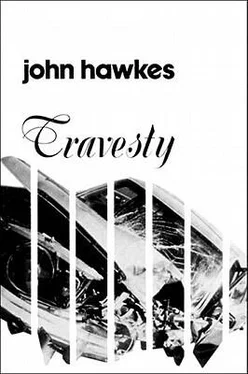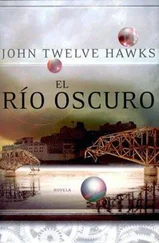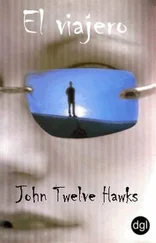I am imbued with the notion that a Muse is necessarily a dead woman, inaccesible or absent; that the poetic structure-like the canon, which is only a hole surrounded by steel-can be based only on what one does not have; and that ultimately one can write only to fill a void or at the least to situate, in relation to the most lucid part of ourselves, the place where this incommensurable abyss yawns within us.
— Michel Leiris: Manhood
You see, a person I knew used to divide human beings into three categories: those who prefer having nothing to hide rather than being obliged to lie, those who prefer lying to having nothing to hide, and finally those who like both lying and the hidden. I'll let you choose the pigeonhole that suits me.
— Albert Camus: The Fall
No, no, Henri. Hands off the wheel. Please. It is too late. After all, at one hundred and forty-nine kilometers per hour on a country road in the darkest quarter of the night, surely it is obvious that your slightest effort to wrench away the wheel will pitch us into the toneless world of highway tragedy even more quickly than I have planned. And you will not believe it, but we are still accelerating.
As for you, Chantal, you must beware. You must obey your Papa. You must sit back in your seat and fasten your belt and stop crying. And Chantal, no more beating the driver about the shoulders or shaking his arm. Emulate Henri, my poor Chantal, and control yourself.
But see how we fly! And the curves, how sharp and numerous they are! The geometrics of joy!
At least you are in the hands of an expert driver.
So you are going to relax, cher ami. You are determined to hide your trembling, achieve a few moments of silence, begin smoking one of your delightful cigarettes, and then after this appropriate expenditure of precious time and in the midst of your composure, then you will attempt to dissuade me, to talk me back to sanity (as you will express the idea), to appeal to my kindness and good sense. I approve. I am listening. The hour is yours. But of course you may use the lighter. Only reach for it slowly and keep in mind my warning. Do not be deceived by my good nature. I am as serious as a sheet of flame.
As for you, Chantal, you must stop that sobbing. I will not say it again. Don't you know that Papa loves you? Not many young women have the opportunity of passing their last minutes in the company of lover and loving Papa both. The black night, the speeding car, the three of us, a glimpse of early snow curled in the roots of a fleeting roadside tree-it is a warm and comfortable way to go, Chantal. You must not be afraid.
And to think that we used to call her the "porno brat." Yes, our own Chantal-no sooner was she able to walk than she was forever stumbling into the erotic lives of her parents. Or perhaps I should say the illusory lives of her young parents. At any rate it was Honorine who began to call our own baby girl the "porno brat." But with a smile. Always with that ingenuous smile so appropriate to the oval and sensual face of the woman who is your mistress, my wife, Chantal's still young and generous mother. And then there was the schoolmate of Chantal's, that boyish jokester, who gave her the optician's chart with its letters diminishing in size and saying TOO MUCH SEX MAKES one shortsighted.
But do you know that I have never worn eyeglasses and even now am permitted to drive the fastest cars without anything at all to assist the sight of my naked eyes?
But Chantal and Honorine-what a pair of names. And to think that at this instant the one is white-faced, tear-streaked and clinging to the edge of hysteria in lieu of prayer directly behind us, while the other sleeps in the very chateau we are approaching. But be brave, Chantal. There will be no comforting Honorine when she receives the news.
Murder, Henri? Well, that is precisely the trouble with you poets. In your pessimism you ape the articulation you achieve in written words, you are able to recite your poems as an actor his lines, you consider yourselves quite exempt from all those rules of behavior that constrict us lesser-privileged men in feet, hands, loins, mouths. Yet in the last extremity you cry moral wolf. So you accuse me of planning murder. But with the very use of the word you reveal at last that you are only the most banal and predictable of poets. No libertine, no man of vision and hence suffering, but a banal moralist. Think of the connotations of "murder," that awful word: the loss of emotional control, the hate, the spite, the selfishness, the broken glass, the blood, the cry in the throat, the trembling blindness that results in the irrevocable act, the helpless blow. Murder is the most limited of gestures.
But how different is our own situation. Suspended as you are in time, holding your lighted cigarette between your fingers, bathed in your own sweat and the gentle lights of the dashboard-in all this there is clarity but not morality. Not even ethics. You and Chantal and I are simply traveling in purity and extremity down that road the rest of the world attempts to hide from us by heaping up whole forests of the most confusing road signs, detours, barricades. What does it matter that the choice is mine, not yours? That I am the driver and you the passenger? Can't you see that your morality is no different from Chantal's whimpering and that here, now, we are dealing with a question of choice rather than chaos?
I am no poet. And I am no murderer. But did Chan- tal ever tell you about the time she won for herself the title "Queen of Carrots?" No? But perhaps your sexual knowledge of my daughter has made you shortsighted after all.
I am not laughing at you. I am the kindest man you will ever meet.
Slow down, you say? But the course of events cannot be regulated by some sort of perversely wired traffic policeman. We do not argue with the star, the comet, the locomotive racing almost invisible in the cold night, the conductor on the empty but moving autobus. I am not a child. I trust you not to demean yourself with mere transparency or pathos. Our speed is a maximum in a bed of maximums which happen to include: my driving skill, this empty road, the time of night, the capacity of the car's engine, the immensity of the four seasons lying beyond us between the trees or in the flat fields. Like schoolboys who have studied the solar system (I do not mean to be condescending or simple- minded) you and I know that all the elements of life coerce each other, force each other instant by instant into that perfect formation which is lofty and the only one possible. I am aware of a particular distance; these yellow headlights are the lights of my eyes; my mind is bound inside my memory of this curving road like a fist in glass.
You cannot know how often I have driven this precise route alone and at the fastest speed I could achieve. You cannot be aware of those innumerable late afternoons each of which contained this silent car, the technician sprawled on his back beneath my car, a bank of chromium instruments, a silence only faintly smelling of grease and oil, myself as the patient spectator in one corner of a place that resembled the nearly empty interior of an aircraft hangar. There, there is your speed. Would you believe it?
Between the adjustments made by the hand of that white-coated figure lying as if dead on the concrete floor of his vast garage, and the warm and living pressure of my own two hands on the thick black skin of this steering wheel-from that time to this, from one hand to a pair of hands, from the minute adjustments made beneath the car to the life of the mind that holds the moving car to the road, there is nothing, nothing at all.
Читать дальше












